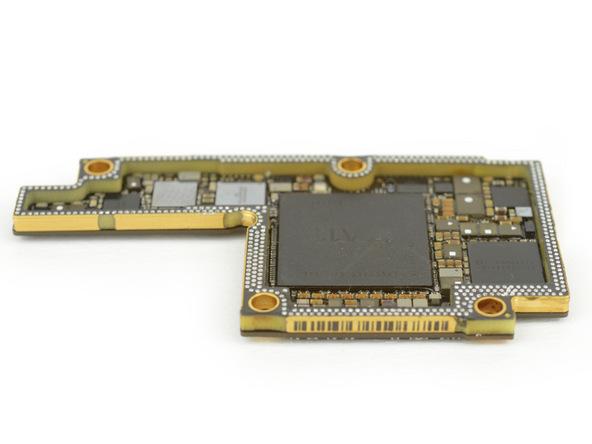GG1
About
- Username
- GG1
- Joined
- Visits
- 205
- Last Active
- Roles
- member
- Points
- 2,159
- Badges
- 2
- Posts
- 483
Reactions
-
Latest addition to Apple's upcoming TV slate is 'Home' docuseries
-
Latest addition to Apple's upcoming TV slate is 'Home' docuseries
-
Watch: Why Apple slows down older iPhones and what you can do about it
Interesting observation. I believe you are correct about faulty batteries.analogjack said:I recently sold my iPod Touch 6 gen, I had it for two years and it's used everyday and I have it running all night every night so it's charged a lot. After two years of this I checked the battery before I sold it and it was in almost new condition. Just bought a one year old SE that was charged every day and it's battery is also at about 95%. Just got rid of a 3rd hand S4 whose battery was also in top condition. All these experiences lead me to conclude that if people are having problems with a battery that's one or two years old then there's something wrong with the battery. So Apple should have replaced batteries that are two years old that cannot perform, because they are obviously faulty.
iPhones have been shipping with the same 5 Watt charger forever, and as iPhone batteries have slightly increased over time, this same charger is now actually charging at a slower rate (relative to the battery capacity, which has increased over time). So the newer phones (6 and later) should have at least the same battery life (and possibly better due to lower charge rate). Yet, there are more battery issues than before.
You can reduce the charging time by using a higher wattage charger, but this may reduce overall battery life. Charging a Li-Ion battery is not straightforward (like lead-acid), and it is not forgiving if you overstep its charge/discharge limits. Look at Samsung's latest issue where it seems some phones over-discharge the battery, making the Samsung-supplied charger unable to recover it (a more intelligent charger can recover it). See http://dolgin.net/Charging%20Lithium-Ion%20Batteries.html for some good info.

-
Samsung's Exynos 9810 mobile processor follows Apple's A11 chip with machine learning feat...
"Why is Qualcomm’s Snapdragon being used in the USA & China and their own chip everywhere else?"seanismorris said:
Why is Qualcomm’s Snapdragon being used in the USA & China and their own chip everywhere else?muthuk_vanalingam said:
If you don't have a clue, better don't talk about it!!! This chip Exynos 9810 will be used in Samsung's flagship phones (S9, S9+, Note 9 or whatever it is called) for 2018, except for USA/China where Qualcomm's Snapdragon 845 will be used. This is known to everyone in Android world.suddenly newton said:What? They announced a chip without announcing the product that will use it? Well I’m sure Android P will have deep feature integration with this... /s
Is this some kind of backroom deal to license Qualcomm’s wireless IP for use in their Exynos?
The USA still use Qualcomm's legacy CDMA2000 system (used by Verizon and Sprint), and Qualcomm control the IP for it in their own chips. For China, I assume their network operators must still have portions of CDMA2000. CDMA2000 is sunsetting, but who knows when.
The rest of the world predominantly doesn't use CDMA2000, so other vendors' modem chips (MediaTek, Samsung Exynos, etc.) can be used (or non-CDMA2000 chips can be used on USA's GSM networks, such as AT&T and T-Mobile, which is why Apple have two iPhone flavors per model -- one with Intel, one with Qualcomm). No Qualcomm licensing is involved in chips that don't support CDMA2000.

-
Intel chip kernel flaw requires OS-level fix that could impact macOS performance, report s...
+1 on soldered component reliability. Every physical interconnection is a defect possibility during manufacture (and reliability over time, as connectors can work loose over time).wizard69 said:
Soldered in components are massively more reliable than socketed components. Any decent engineer will strive to minimize interconnections by their nature sockets had many unneeded connections to a system.netrox said:Actually, we should sue Apple as well, think of it - by sueing Apple (and every other PC company), we can force their devices to be more modular and more accessible for upgrades/exchanges. There is really no reason to soldier everything on a logic board considering that it can be expensive if they are forced to replace all logic boards with soldiered cpu's/ram. The components keep getting smaller and thinner yet they can easily be socketed. I cannot think of a reason why it should be soldered.
Beyond that you are living in the past the trend is to move more and more functionality either on die, in to a chip stack or in package. We are already seeing this in high performance GPUs. And of course cell phone chips are wafer stacks these days.
Note Apple's first use of "2.5D" PC board construction in the iPhone X (the raised border around the perimeter, which is actually part of the PC board). This method eliminates multiple interconnect components and ribbon cables for much better reliability. From https://www.ifixit.com/Teardown/iPhone+X+Teardown/98975.






